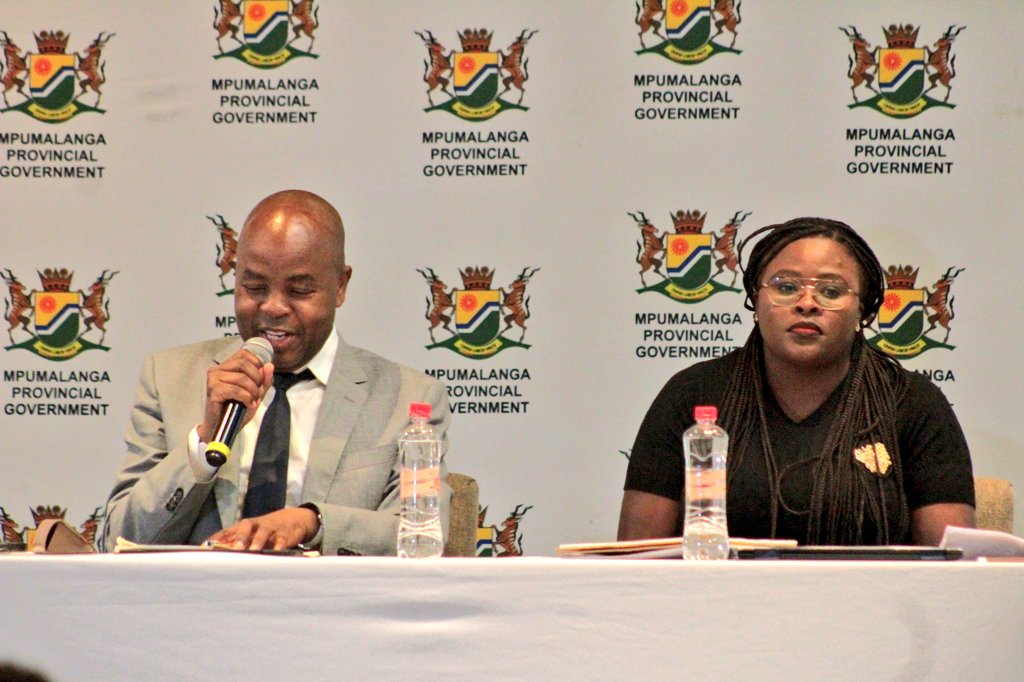By Lebone Rodah Mosima
Mpumalanga Premier Mandla Ndlovu called for tighter coordination across government and civil society as he opened the first sitting of the province’s new council on gender-based violence and femicide (GBVF) in Mbombela on Thursday.
The premier warned that failure to act decisively would undermine rights protections.
“GBVF was declared by President Cyril Ramaphosa as the second pandemic. This declaration is a testament to the severity of the situation we find ourselves in.
“The President recognised that GBVF has reached intolerable levels, impacting individuals across all demographics and eroding the very fabric of our society,” said the Premier.
“This declared second pandemic has further been regarded as a global scourge. It is for this reason that it is one of the burning topics at the G20 summit here in our country.”
The G20’s Empowerment of Women Working Group (EWWG), which has made tackling gender-based violence and femicide its top priority, has wrapped up its final meeting under South Africa’s presidency.
It adopted a major ministerial declaration on women’s empowerment that G20 leaders are expected to endorse at the main summit on 22–23 November.
Ndlovu said that the declaration included:
–Unified commitment of a collective pledge by G20 leaders to strengthen efforts to eliminate GBVF.
–Legal and policy reforms in implementing comprehensive policies and strengthening national legal frameworks to address and prevent GBVF, including stricter penalties for perpetrators.
–Enhanced support services toward improving survivor-centred support systems such as shelters, counselling, and legal assistance.
–Prevention and awareness, i.e, investing in prevention strategies, public awareness campaigns to challenge harmful gender norms, and engaging men and boys as allies in the solution.
–Leveraging technology and Artificial Intelligence (AI) to support survivors and prevent violence, including addressing new forms of digital threats like cyberbullying.
–Data and accountability, to strengthen research, data collection, and monitoring and evaluation for improved accountability and evidence-based interventions.
–Collaboration and knowledge exchange, enabling the creation of platforms for G20 members to share best practices and successful models for institutional coordination and policy development.
–Addressing root causes, together recognising that GBVF is rooted in systemic gender inequality and addressing intersecting factors like poverty and lack of financial inclusion for women.
“The importance of convening this Council in November, especially during a month dedicated to activism against women and child abuse, cannot be overstated. This month marks the start of the 16 Days of Activism campaign, during which we intensify our commitment and efforts to combat violence against women and children,” the Premier said.
“The timing of our meeting allows us to align our discussions with a national movement that seeks to raise awareness, mobilise communities, and hold perpetrators accountable.
“It is a time to reflect on the devastating impact of GBVF while seeking solutions that will lead us to a safer and more equitable Mpumalanga.”
He said that when examining what fuels GBVF, it was vital to identify the forces that kept it alive.
Harmful gender norms and toxic masculinity, economic inequality, and limited education on values and respectful conduct were major drivers of violence against vulnerable people. The widespread normalisation of violence in many communities also created conditions where abuse was ignored or treated as acceptable.
“To mitigate these causes, we must commit ourselves to public awareness initiatives, education programmes, and community engagement that challenge harmful stereotypes and promote respectful relationships based on equality and consent.
“The role of this provincial council in addressing GBVF is paramount in creating a cohesive strategy that tackles these causes head-on,” he said.
He said the province envisioned a future free of GBVF, one in which everyone in Mpumalanga, regardless of gender, age or background, could live in safety, dignity and respect as guaranteed by the Bill of Rights.
Victims should be supported in communities, he said, justice must be delivered, and prevention must be prioritised.
INSIDE METROS

